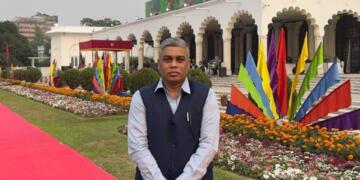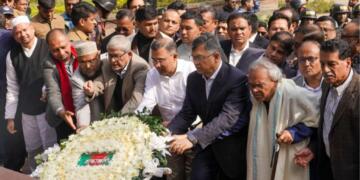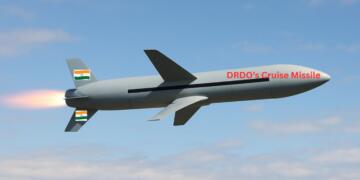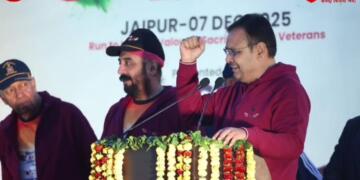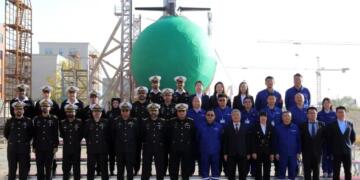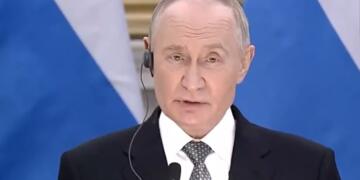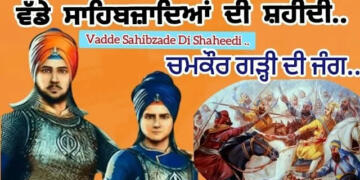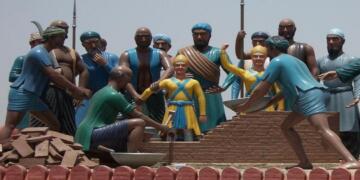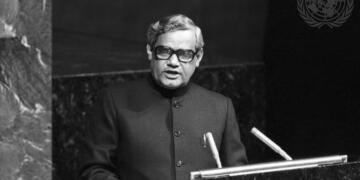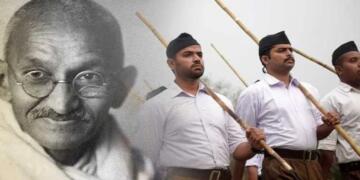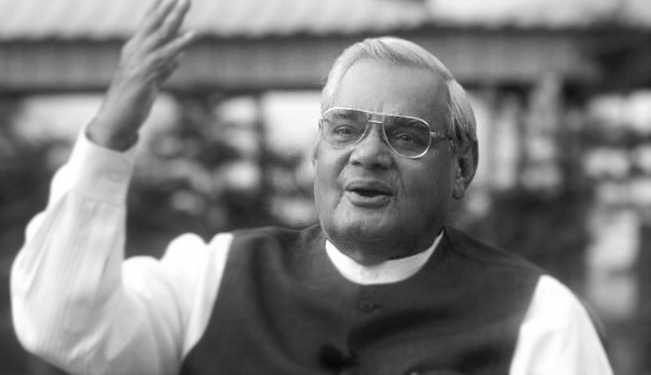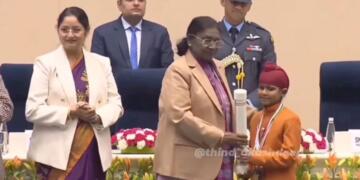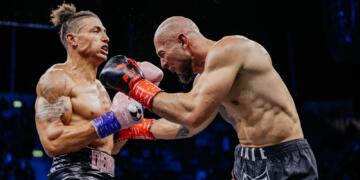I was only a child during the Vajpayee era so my knowledge about it is mostly second hand. I vaguely remember the last few days of his prime ministerial term, the India Shining campaign and the 2004 election canvassing. At home, there was gloom in the air the day the results were announced.
A new government came to power and for some time, everything seemed just fine. The country recorded high economic growth, the railways were profitable once more and the atmosphere was generally positive. It was much later that we realized this was hogwash. India was being subject to loot like never before. And I learned that every reason to rejoice was in fact a seed sown by the Vajpayee government coming of age. Governance which brought long term benefit was just one aspect of the package that was Atal Ji.
Politician, poet, patriot- one can use several words to describe the man. Many believe India never heard a political orator of such class. Others believe we never had a prime minister who displayed both courage and statesmanship to this extent. What we must realize about Atal Ji is that he was a selfless patriot with a clear vision and plan. His every move was strategic, not personally or politically, but for the country. His political career was an embodiment of the much used phrase nowadays, ‘India first’.
Vajpayee’s political career began as a teenager with the freedom struggle.
Though he had communist leanings initially, he soon moved to the other side of the spectrum. He joined the RSS and began working for right wing newspapers. In 1942, he went to jail for the first time, after taking part in the Quit India Movement. But his career in electoral politics began only in 1951, when he emerged as one of the prominent faces of the Bhartiya Jan Sangh. This was a political party associated with the RSS, which later went on to become the BJP.
He was elected to the parliament for the first time in 1957. Prime Minister Jawaharlal Nehru, a political adversary, predicted publicly that Vajpayee would lead the country someday after hearing him speak. Unlike most of the Janata Dal, which was an offspring of the Congress party and in later years did a lot of business with them too, Atal Ji was clear about who his political adversaries were from day one. But for him, political boundaries were immaterial when national interest was at stake. It is believed that Indira Gandhi, second generation of the dynasty, often consulted him on issues before taking important decisions. His bombastic words of appreciation for her after the 1971 war is often remembered. What all of this points at, is that this is a man who understood the concept of democracy and remained faithful to it. Opposing for the sake of opposition and being detrimental to the country are disturbing trends, and our current political class can learn a lot from him.
Vajpayee went to jail again in 1975, alongside all of Mrs. Gandhi’s other political adversaries during the emergency. It is after this that he got his first big break. Fighting the following elections under the anti-Congress Janata Party umbrella, Vajpayee became part of the first non-Congress government in India. He was made foreign minister. Although what he is remembered for is the first Hindi speech in the UN general assembly, his larger contribution went unnoticed. This is typical Atal Bihari, most often remembered for the symbolism and forgotten for the substance. Back in the day, India’s non-aligned stance remained only in letter. Becoming part of the ongoing global polarization was certainly not in the country’s best interest. Under Atal Ji, this obvious tilt to one side was very skillfully rendered insignificant and non-alignment was restored.
The Janata experiment was a failure because unlike Vajpayee, the others were activists and not administrators. Those belonging to the erstwhile BJS regrouped to form the BJP. In the first elections that it fought, the party which has over two hundred eighty Lok Sabha seats today, won just two seats. This is where Vajpayee’s political credentials come to light. The organization that he and his colleagues built thereafter has been the only strong, long-term answer to the inferior brand of politics the country had been witness to thus far. Being the first non-Congress prime minister to serve a full term brought about a huge change in the mentality of the average Indian: there indeed existed a viable alternative to the corrupt, entitled, pseudo-secular Congress Party.
But nobody can overlook the action-packed one year he served as prime minister before serving his full term. The BJP had been the single largest party in parliament for a while now, and it is believed that this was achieved through right wing nationalism or religious polarization, whichever way one wants to look at it. But it’s interesting to note that Atal Ji was never at the forefront of any of these movements. He was considered too liberal and friendly a face to be the poster-boy of temple politics. And yet, in that one year he served as prime minister before Jayalalithaa decided to pull the plug on this coalition government, Vajpayee showed the world that actions spoke louder than words.
Just a month into government, five underground nuclear tests were conducted. India had obtained the technology many years ago but previous governments refrained from testing it out, fearful of Western sanctions. It is believed that what struck Vajpayee (something successive prime ministers had failed to understand) is that in the absence of palpable results, talented young scientists working on projects of national importance would opt for better jobs abroad or in the private sector. This was coupled with an outlook of fearlessness towards the imminent sanctions and a firm belief that they shall soon pass. Not only were the sanctions a complete failure (as they usually are and should be), but the world order faced a second big jolt two weeks later when Pakistan tested their nuclear weapons. The famous bus ride and the diplomatic peace process that followed wasn’t even supported by most of the BJP, including prominent members of the current dispensation. They weren’t wrong because our neighbors did stab us in the back very soon with Kargil. But once again, Vajpayee saw the larger picture. With the sanctions, the shakeup in the global status quo, the hostility between both neighbors and Kashmir increasingly being perceived as the reason for a nuclear war, somebody had to cool things down. Without hesitation, Atal Ji stepped up. And when Kargil happened a few months later, he remained as strong as ever. India reclaimed every inch of land that was taken, losing five hundred brave men and exterminating over two thousand trespassers.
It was after this that India’s first full-term serving non-Congress government was elected. Several milestones in foreign policy, economic reforms and infrastructure development were achieved. Barely two years after the sanctions, the volume of Indo-U.S. trade touched levels never seen before. India recognized Tibet as an integral part of China in exchange for the dragon’s recognition of Sikkim as an integral part of India. Privatisation of government corporations, a reformed tax system and the deregulation of trade were a continuation of the slew of pro market reforms which began in 1991, but were discontinued during the Janata years. Money was pumped into railways, highways, huge irrigation and housing schemes. The Manmohan-led UPA government admitted to the Supreme Court in 2013 that of all roads made in the past 32 years, half had been constructed under the Vajpayee government. Despite being a roaring success, they lost the following elections.
One wonders how the Manmohans of this world manage to get two full terms with an electorate that judged so harshly in 2004. But if there was one man back then who didn’t care much, it was probably Vajpayee himself. Being fully satisfied with what he had achieved, he would have humbly accepted the mandate of democracy and moved on with his life.
It isn’t as if he didn’t face any setbacks during his prime ministership. The Agra Summit and the IC 814 hijack are most certainly blots on his otherwise wonderful term. But lest we forget, he took India to many new heights. Under him India did shine. Happy ninety-first birthday sir!


